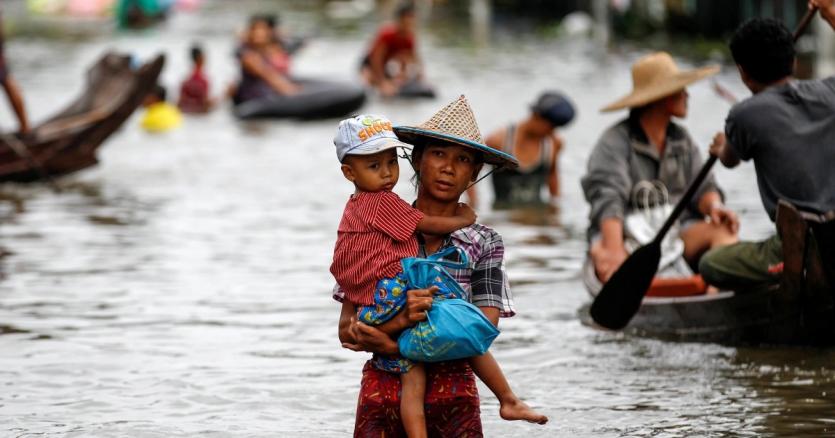Myanmar has been placed among some of the countries considered most at risk when it comes to the issue of the climate crisis, by the Global Climate Risk Index. Photo: Reuters/Al Jazeera
By Patryk Krych | The World Daily | DECEMBER 1st 2021
Myanmar has been placed among some of the countries considered most at risk when it comes to the issue of the climate crisis, by the Global Climate Risk Index. A crisis that has only been exacerbated since the country’s military coup back on February 1.
The generals who had taken control of the country of Myanmar nearly a year ago are seeking to further solidify their power, a lot of which involves the exploitation the country’s natural wealth through policies that are environmentally destructive.
This follows decades of history of deforestation and mineral mining in the country, which is already experiencing drought, flooding and severe landslides. The climate crisis is becoming most noticeable in Myanmar as a result.
“There are good investable projects in Myanmar which would build climate resilience such as natural reforestation and renewable energy projects,” said the director of Yangon-based Myanmar Centre for Responsible Business and former British ambassador to Myanmar, Vicky Bowman.
She added: “But development partners seem frozen since the coup, and private sector investors instinctively now view Myanmar as high risk and look to alternatives in Southeast Asia, even though climate investments there may have as many problems in practice as Myanmar.”
Alongside Puerto Rico and Haiti, the South East of Asia had experienced some of the most devastating weather and climate events over the course of the last two decades. Repeated floods and landslides have been a major concern.
Efforts towards renewable resources and energies had been slow under the government of Aung San Suu Kyi, but plans had been in motion for the development of better climate resilience in the future. All such plans and projects had been interrupted and permanently suspended since the military coup of February 1, replacing the then-elected government with a military junta.
It was on Tuesday when the judge had delayed the verdict for Myanmar’s 76-year-old Aung San Suu Kyi, after her arrest in February during the coup. She’s facing 11 charges that could lead to the cumulative sentence of 102 years of imprisonment.






